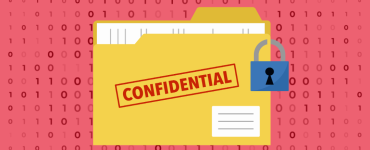Reducing technological dependencies and networking linear value-added chains in the digital single market more easily – GAIA-X creates the self-determined and sovereign data space for this. How exactly the initiative should succeed in this was the subject of a public hearing in the German parliament, the Bundestag, at the end of October.
No matter whether big-data applications, data marketplaces or office software – there is hardly a service that is not available today from the cloud via the Internet. Large providers are making their services increasingly cost-effective. And are therefore also accumulating more and more market power. The consequences for users: technological dependencies. Dependencies that GAIA-X wants to resolve for Europe. Why so? “Currently, the cloud market is dominated by a few hyperscalers”, said Manuel Höferlin, head of the Digital Agenda Committee in the Bundestag. On 28 October in Berlin, experts participated in a public consultation and answered politicians’ questions on data sovereignty and GAIA-X.
GAIA-X: Exploiting the opportunities of the data economy
“How can we promote the use of data and advance applications of Industry 4.0 in Europe?”, asked Prof. Axel Metzger (Humboldt University of Berlin). “This is addressed by the data strategy that the EU Commission presented in February.” The first measures are now being introduced, for which one thing above all else is needed: “Legal certainty and political decisions”, said Metzger. “Because this is the only way to exploit the opportunities of the data economy, strengthen competition and realise the digital single market.” A prerequisite for this, not only during the Covid-19 pandemic, is “stable and resilient infrastructures”, Andreas Weiss (eco) pointed out. “To this end, GAIA-X will lay the foundation for prosperity and growth in our future society with unified framework conditions, technological standards and European values.”
45 billion Euro market potential for GAIA-X in 2023
The economic potential this foundation is expected to unleash in Europe: An analysis prepared within the framework of GAIA-X indicates that the relevant market will be worth around 45 billion Euro in 2023 – with annual growth of around 17 to 19 percent. What’s behind the numbers from the statement from SAP: “Data is becoming more and more valuable,” said Fabian Biegel from the German-based software company: “A value that must be safeguarded”. On the one hand, clear mechanisms that regulate how one’s own data can be processed, and on the other, trustworthy and secure ecosystems such as GAIA-X are crucial for success. Biegel: “Interoperability is the key”. This is the only way to sensibly integrate the more than 100 cloud providers already working on GAIA-X into the project. And this is the only way to compensate for market advantages in international competition in favour of Europe.
Weiss explained what is not needed: “We don’t need a European hyperscaler, nor a European cloud. With GAIA-X, it is much more important to intelligently combine existing services and infrastructures in new ways. And all this in line with the requirements of the user group.” More than 300 companies have already participated in the GAIA-X AISBL which is currently being set up as an international non-profit organisation under Belgian law. Biegel: “We are building on the work of the International Data Spaces Association and are establishing GAIA-X as a kind of gold standard for cloud services. Thus, the initiative develops all offers federally with the members in line with concrete use cases.”
GAIA-X is self-determined, open, transparent and secure
What all use cases have in common: a common understanding of what data sovereignty and data integrity mean. “Individuals, companies and states must be able to determine how the data they generate themselves is used”, said Peter Ganten (Bundesverband für digitale Souveränität e. V.).“This capacity is necessary for the future of Europe in order to foster competition and innovation.” What is also important for this goal: “Stronger societal discourse about digital sovereignty”, said Elisabeth Lindinger (Superrr Lab). “This is the only way to create the transparency we need to increase acceptance of the technologies. And only in this way can we produce an ecosystem capable of balancing the market.” Self-determined, open and transparent – above all, GAIA-X must process data in a protected and secure manner. “Just because IT products are operated in Germany or Europe, does not mean that they are automatically safer”, said Dr. Sven Herpig (Stiftung Neue Verantwortung). The decisive factor is to implement IT security measures using the example of the C5 Catalogues to be implemented by the German Federal Office for Information Security (BSI). This is the only way to reliably train artificial intelligent models.
Exchange business data confidently across business boundaries
“GAIA-X will create a digital space for self-determination that Europe already appreciates”, said Weiss. This ecosystem has been shaped by the eco Association from the very beginning. “Linear value chains break up into overarching value-added networks”, said Biegel. “For this, too, we need GAIA-X in order to be able to orchestrate corporate processes and business data throughout the entire European single market with confidence and to synchronise them securely.” This can only be achieved with a distributed and federated data platform on which services can be booked and connected just as easily as cloud users are used to today. “And just as simply as an agile European digital economy in today’s global market requires”, said Weiss.




